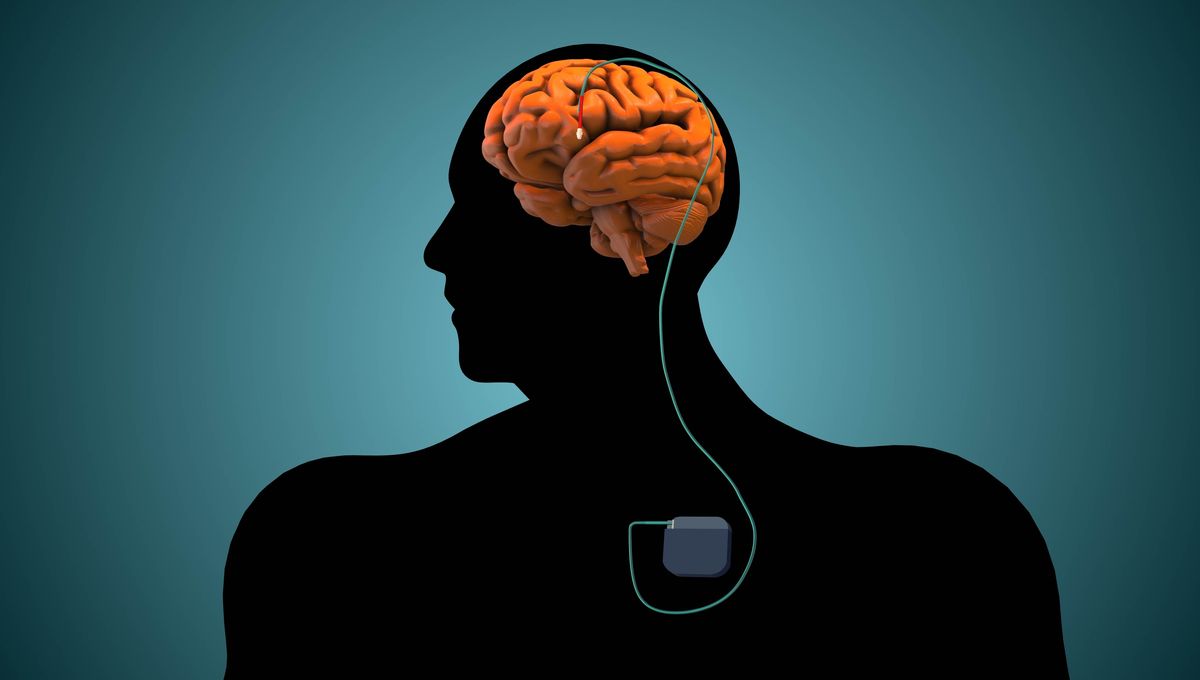
A personalized approach to a common Parkinson’s disease treatment may lead to substantially improved results, according to a new study. Deep brain stimulation (DBS), which involves implanting electrodes into the brain to stimulate regions affected by the disease, is usually a standardized treatment – but the study team found that an approach adapted to each patient might be a better way forward.
DBS can offer Parkinson’s disease patients a lifeline when drug treatments are no longer working so well. It’s particularly helpful for dealing with the motor symptoms of the disease, such as tremors and rigidity.
Electrodes are implanted into specific brain regions, connected via wires that run down through the neck to a neurostimulator that is inserted just under the skin, usually near the collarbone. The stimulator is similar to a heart pacemaker; it provides the power to send bursts of electricity to stimulate the brain tissue in a targeted way.
While the positioning of the electrodes can be adapted slightly to suit each person, the stimulation itself is usually continuous while the device is switched on, meaning it’s not always super-precise and can sometimes over- or undercompensate, leading to side effects.
Led by a team at the University of California San Francisco, a new study aimed to trial a more personalized approach to DBS, called adaptive DBS (aDBS), in four patients with Parkinson’s. The trial builds on foundational work conducted by senior authors Dr Simon Little and Dr Philip Starr, demonstrating that patients with Parkinson’s show unique brain wave fluctuations associated with both motor and non-motor symptoms.
“The big shift we’ve made with adaptive DBS is that we’re able to detect, in real time, where a patient is on the symptom spectrum and match it with the exact amount of stimulation they need,” said Little in a statement seen by IFLScience.
The months-long project involved collecting recordings of brain activity from the patients for several days – both in the clinic and going about their normal activities at home – and comparing that against smartwatch data and the patients’ own reports of their symptoms.
Taking this data, they recognized that brain activity in the motor cortex was a reliable marker of the patients’ symptom fluctuations. Personalizing each patient’s stimulation to their own neural signals led to a 50 percent reduction in the duration of their motor symptoms relative to the traditional, continuous stimulation. Three of the four patients also reported that the new protocol improved their quality of life.
This is only a small pilot study, and further research will be needed to refine the approach. But aDBS has been a research goal for a long time, and these findings provide more evidence to suggest that this has the potential to provide considerable benefits for at least some of the over 8.5 million people thought to be affected by Parkinson’s worldwide.
“There’s been a great deal of interest in improving DBS therapy by making it adaptive and self-regulating, but it’s only been recently that the right tools and methods have been available to allow people to use this long-term in their homes,” said Starr.
The researchers also note that most patients would still need to take medication to replace the dopamine that the brain is no longer able to produce to the same levels as before, even with aDBS, but this is also the case with conventional DBS. The stimulation can work in tandem with the drugs, ramping up as the drug starts to wear off before the next dose.
DBS itself marked a huge shift in the treatment of Parkinson’s disease. The team hopes that aDBS could one day be similarly seismic – and not only for Parkinson’s patients.
“We see that it has a profound impact on patients, with potential not just in Parkinson’s but probably for psychiatric conditions like depression and obsessive-compulsive disorder as well,” said Starr. “We’re at the beginning of a new era of neurostimulation therapies.”
The study is published in the journal Nature Medicine.
Source Link: Personalized Brain Stimulation Reduces Parkinson’s Symptoms By 50 Percent In Early Study